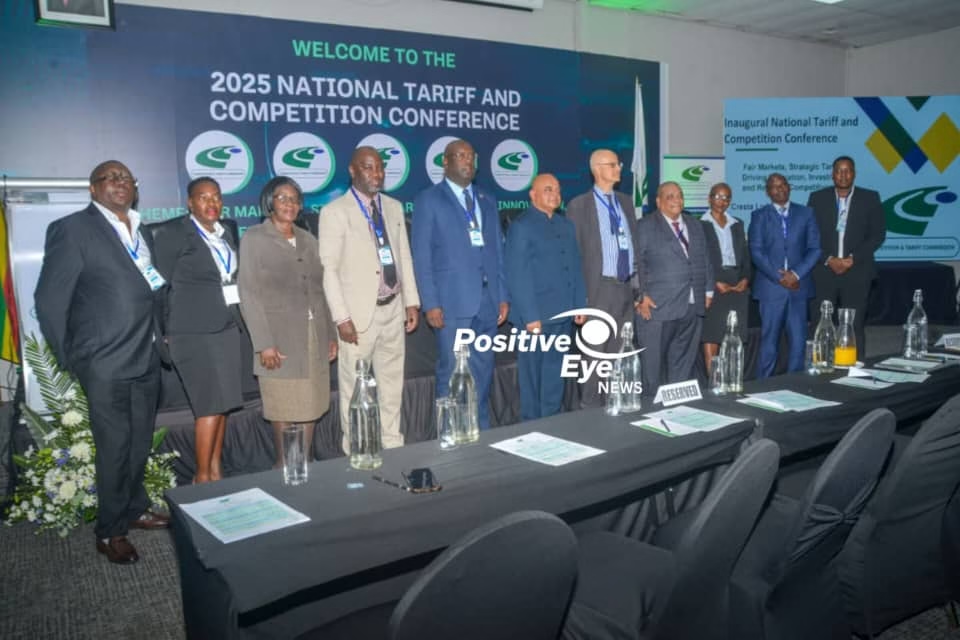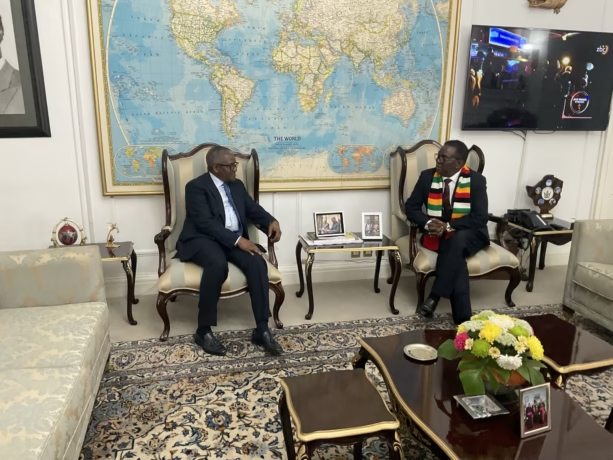
Zimbabwe’s economic landscape is being reshaped not by chance, but through deliberate institutional action, a message delivered with clarity by the Director of the Competition and Tariff Commission during the inaugural National Tariff and Competition Conference in Harare. Standing before policymakers, industrial leaders, academics and regional regulators, the Director did not simply present a speech, he laid out an assertive blueprint for how Zimbabwe’s markets, tariffs and industries must evolve to meet Vision 2030.
Although the Honourable Minister of Industry and Commerce, Hon Mangaliso Nqobizitha Ndhlovu, was absent due to pressing commitments, the Director made it clear that the very existence of this joint conference is rooted in the Minister’s strategic guidance. It was the Minister who proposed uniting tariff and competition discussions into one national platform, arguing that Zimbabwe cannot drive industrial growth while treating tariffs and competition law as isolated instruments. The Director highlighted that this vision was heard, translated into action, and ultimately crystallised in the conference itself.
Throughout the speech, the Director positioned the Commission not as a background regulator, but as a pivotal economic actor helping shape Zimbabwe’s development trajectory. He revealed that in 2024 the institution evaluated forty four merger transactions, striking a balance between regulatory caution and investment facilitation. Thirteen local mergers were completed, many approved unconditionally, some approved with public interest conditions, and one blocked entirely to prevent a monopoly from emerging. The Director stressed that Zimbabwe welcomes investment, but not at the expense of competitive markets or consumer welfare.
He underscored how merger regulation has become a strategic tool for industrial development. The Director cited the Prospect Lithium Mine and Huayou International Mining deal, where the approval was granted on the condition that the merged entity establish a lithium sulphate smelter within ten years. This conditionality triggered a four hundred million United States dollar investment in Goromonzi, created more than two thousand jobs and deepened Zimbabwe’s presence in the global lithium value chain. The Director emphasised that this is what smart regulation looks like, one that transforms mergers into engines for national development.
The Director also flagged the Commission’s aggressive stance on anti competitive practices, reporting seventeen restrictive practice cases across core sectors. The most impactful were in the education sector, where schools were compelling parents to buy uniforms exclusively from the institutions. The Director explained how investigations led to cease and desist orders and a national circular issued by the Ministry of Primary and Secondary Education, restoring price fairness for thousands of households. This was presented not merely as enforcement, but as a defence of ordinary families from exploitative market behaviour.
In the tariff space, the Director reported that twelve tariff assistance applications were reviewed and nineteen trade negotiation processes supported. However, he highlighted a historic development, Zimbabwe completed its first safeguard investigation in the toothpaste sector, joining the few African nations using trade remedies to protect domestic industry from harmful import surges. More investigations are underway in fibreboard and doors, signalling a new era where Zimbabwe protects industry not through blanket bans, but through legally grounded, evidence based trade instruments.
The Director also celebrated the completion of the National Trade Tariff Policy, validated nationwide and now awaiting Cabinet approval. He explained that the policy provides Zimbabwe with a structured approach to tariff setting for the first time, balancing protection of local industry with regional trade obligations.
One of the most compelling examples delivered in the speech was the case of Ref Air, a Bulawayo manufacturer of industrial refrigeration panels threatened by imports. The Director narrated how the Commission recommended the creation of a separate tariff classification carrying a sixty percent duty, preserving production, securing jobs and protecting industrial capacity. This intervention has since been reinforced through SI 122 of 2024.
In addition, the Director outlined the institution’s achievements in legislative reforms, announcing that amendments to the Competition Act have been completed and are now ready for submission to the Cabinet Committee on Legislation. These reforms introduce stronger penalties and modern tools for tackling anti competitive behaviour.
Yet he did not shy away from challenges. The Director highlighted resistance from some stakeholders during investigations, delays in supplying evidence and recurring violations of competition rules. He called for stronger cooperation, reminding stakeholders that the Commission’s role is not to suffocate business but to facilitate fair, efficient and competitive markets that support national development.
Ultimately, the Director framed the conference as a turning point. Zimbabwe’s industrial future, he argued, depends on a balanced policy regime that protects strategic industries, encourages innovation, enforces competition and prepares domestic firms for continental markets under the AfCFTA. His call was unmistakable, only strong collaboration between government, industry and regulators will deliver the modernised, inclusive and competitive economy envisioned in Vision 2030.




